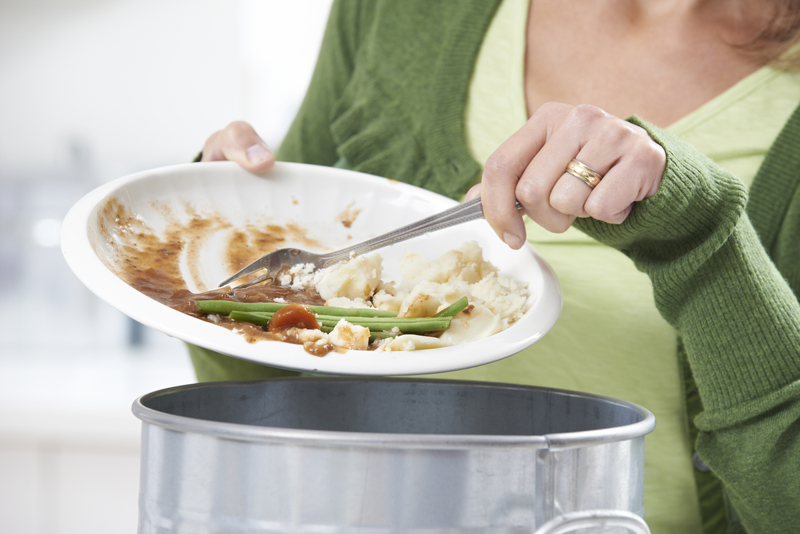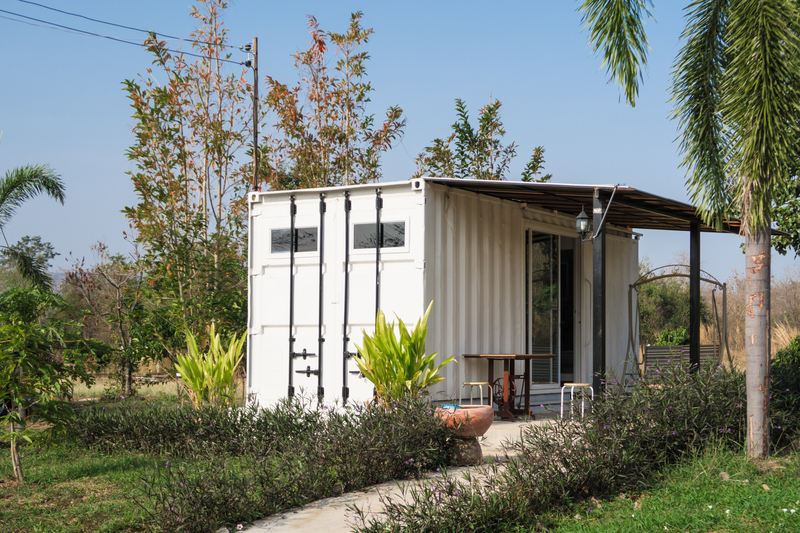Unlock Big Savings with Smart Disposal of Bulky Waste Items
Every household or business inevitably faces the challenge of disposing of large, cumbersome items. From outdated furniture and worn-out mattresses to broken appliances and electronics, bulky waste can accumulate quickly. If not handled wisely, removing these items can be expensive and environmentally damaging. But here's the good news: with smart disposal strategies, you can significantly cut costs, reduce environmental impact, and even unlock unexpected benefits. This comprehensive guide reveals how you can save big on bulky waste disposal while contributing to a greener world.
Understanding Bulky Waste and Its Impact
Bulky waste - also known as large item waste or large refuse - includes items too big for regular waste collection services. This typically covers:
- Old furniture (sofas, beds, tables, wardrobes)
- Large appliances (refrigerators, washing machines, ovens)
- Mattresses, carpets, and rugs
- Outdoor items (BBQs, patio furniture, gardening equipment)
- Electronics (TVs, computers, stereo equipment)
Improper disposal of these items not only creates eyesores and roadblocks but can also result in hefty fines, waste of resources, and environmental hazards. In most municipalities, dumping bulky items illegally or placing them incorrectly at the curb can cost you dearly.

Why Smart Disposal Makes Financial Sense
The average cost of traditional bulky item pickup - such as municipal collection or hiring a private junk removal service - ranges from $50 to several hundred dollars per item. These costs escalate fast, especially during home renovations or clean-outs.
By adopting cost-effective bulky waste disposal methods, you can:
- Reduce or eliminate disposal fees
- Divert waste from landfills, often saving on landfill taxes or surcharges
- Maximize value through resale, donation, or recycling
- Minimize environmental liability, avoiding fines or remediation costs
Let's explore the best strategies to unlock savings with smart disposal of large waste items.
Best Strategies for Smart Bulky Waste Disposal
1. Plan Ahead and Analyze What Needs Disposal
Start by making an inventory of your large unwanted items. It's extremely helpful to sort items into categories:
- Still in usable condition
- Reusable or upcyclable for parts
- Not working or heavily damaged
2. Sell or Donate Usable Items
Why pay for disposal when you might earn money or give items a second life?
- Online Marketplaces: Platforms like Craigslist, Facebook Marketplace, and OfferUp make it easy to sell or give away furniture, appliances, and other large items directly to local buyers who often handle pickup.
- Charitable Donations: Organizations such as Goodwill, Habitat for Humanity ReStores, Salvation Army, and local shelters accept many types of furniture and appliances. Some even offer free pickup, saving you time and disposal fees.
- Tax Benefits: Donating items can provide significant tax deductions, offering another way to maximize your savings.
Embracing donation or resale as your primary smart disposal strategy not only reduces large waste disposal costs but also helps your community.
3. Use Municipal Bulk Pickup Services Efficiently
Many cities offer scheduled bulk waste collection events or periodic curbside pickup for residents, often free or at minimal cost. Here's how to take full advantage:
- Check Local Guidelines: Every municipality has rules regarding size, weight, acceptable materials, and scheduling. Confirm what items are allowed and how they should be prepared.
- Plan Group Disposals: Coordinate with neighbors to combine loads where possible, maximizing pickup efficiency and possibly sharing any minor fees.
- Comply With Preparation Requirements: Some cities require mattresses to be wrapped, or refrigerators to have doors removed. Avoid rejections (which can lead to extra costs) by reading instructions carefully.
Pro Tip: If your city's bulk pickup schedule is limited, ask about drop-off days at local waste transfer stations. Sometimes, there's a "free large item disposal" event several times a year!
4. Harness the Power of Recycling Centers
Many bulky waste items - especially appliances, electronics, metal furniture, and some plastics - contain valuable materials. Take advantage of local recycling programs:
- E-waste Recycling: Computers, TVs, and electronics often have free or low-cost recycling drop-off points. Recycling them responsibly prevents environmental contamination and may earn you incentives.
- Scrap Metal Yards: Metal beds, grills, and broken appliances have scrap value. Yards may pay you (or at least accept items free) if you bring them sorted.
- Mattress and Furniture Recycling: Some cities have programs specifically for mattress, sofa, or carpet recycling, diverting them from landfills and sometimes reducing costs compared to trash removal.
Not only is recycling an eco-friendly alternative, but it's frequently the cheapest and sometimes even a profitable way to dispose of large waste items.
5. Upcycle or Repurpose for New Use
Creative DIYers have found ways to turn almost any bulky item into something new:
- Convert drawers or cabinets into planters or storage bins
- Turn pallets and old bed frames into furniture or garden structures
- Use appliance parts for craft projects or home repairs
Before disposing of items, consider if they could be given a second life. Not only will you save on disposal costs, but you might also avoid the expense of buying new items!
6. Share or Swap Bulky Items
If your items still have life left in them, neighborhood swaps or community sharing events can be a fantastic way to dispose of large items:
- Organize a local "freecycle" event or list your items with the Freecycle Network
- Check local Facebook groups or neighborhood platforms such as Nextdoor for curb alerts or swap opportunities
7. Rethink Hiring Full-Service Junk Removal
While convenient, professional junk removal companies often charge a premium for large or heavy items. Cut costs with these alternatives:
- Break Down Items Yourself: Disassembling furniture or appliances can save you money on labor and potentially allow for cheaper or more varied disposal options.
- Rent a Dumpster with Neighbors: If you have extensive bulky waste, sharing a roll-off dumpster between several households or businesses can dramatically reduce costs per person.
- DIY Hauling: Borrow or rent a truck and take items to the local landfill, recycling yard, or collection point yourself. Most facilities charge less for direct drop-offs than scheduled pickups.
The more hands-on you are, the more you unlock big savings with smart disposal practices!
8. Avoid Common Bulky Waste Disposal Mistakes
Many costly errors can be sidestepped by following these guidelines:
- Don't dump illegally: Fines for illegal dumping are steep and could include legal action, cleanup costs, and harm your community reputation.
- Don't ignore hazardous materials: Refrigerants, batteries, electronics, and chemicals require special handling - never place them with general large waste.
- Don't miss out on special events: Many municipalities offer free spring cleanups, electronics roundups, or bulky item amnesty days. Stay informed by signing up for city newsletters!
Environmental and Social Benefits of Smart Disposal
The perks of cost-effective bulky waste disposal go beyond your wallet:
- Reduces landfill use: Recycling and reuse dramatically decrease the amount of waste sent to landfills.
- Supports local charities: Donations help furnish homes, shelters, and community initiatives.
- Fosters community engagement: Local swaps and recycling events build neighborhood ties.
- Promotes environmental stewardship: Responsible disposal safeguards natural resources and public health.
By choosing smart bulk waste solutions, you're making an investment in both your future and that of the planet.
Quick Comparison Table: Bulky Waste Disposal Options at a Glance
| Disposal Method | Cost | Effort | Environmental Impact | Additional Benefits |
|---|---|---|---|---|
| Sell or Donate | Free/Earn | Moderate (listing/transport) | Very Low | Tax deductions/community support |
| Municipal Bulk Pickup | Low (often free) | Low | Medium-Low (depends on local recycling) | Convenient/scheduled |
| Private Junk Removal | High | Very Low | Medium | All-inclusive/rapid |
| DIY Drop-Off | Low-Medium | High | Low (if recycling options used) | Direct control, possible scrap value |
| Recycling Centers | Free/Earn | Moderate | Very Low | Resource recovery |
Unlock Savings with These Bonus Tips
- Check Manufacturer Take-Back Programs: Some brands, especially for appliances and electronics, offer free old item pickup when you buy a replacement.
- Schedule Disposals Strategically: Disposing of multiple items at once can save considerably compared to individual pickups.
- Keep an Eye Out for Community Events: Spring and fall often bring free cleanup days and recycling drives.
- Seek Local Business Partnerships: Small businesses often need to upgrade furniture or displays; they may buy or take your gently used bulky items if you reach out directly.

Frequently Asked Questions about Smart Bulky Item Disposal
How do I find out about local bulk waste disposal options?
Check your municipality's website or call their public works or sanitation department. Most publish annual schedules or guidelines for bulky item disposal.
What items can't be disposed of as bulky waste?
Hazardous materials (paint, oil, chemicals), construction debris, tires, and certain electronics usually require special facilities. Always verify before setting out items.
Is it safe to leave items at the curb?
Only put items out during designated collection windows and according to local preparation rules to avoid citations.
Can I donate items that need minor repairs?
Yes! Many organizations will accept slightly damaged or repairable furniture and appliances, especially if you mention their condition upfront.
Conclusion: Embrace Smart Strategies for Bulky Waste Disposal
Unlocking big savings with smart disposal of bulky waste items is about more than just reducing costs: it's a commitment to resourcefulness, sustainability, and community wellbeing. By adopting the approaches outlined above - from selling and donating to strategic use of recycling and municipal resources - you can save money, help the environment, and even support local charities.
Remember, every bulky item has a journey beyond your curb. With a little planning and smart choices, responsible bulky waste disposal can be easy, economical, and immensely rewarding. Don't let those large, unwanted items weigh on your wallet or burden the planet. Start unlocking your savings today!